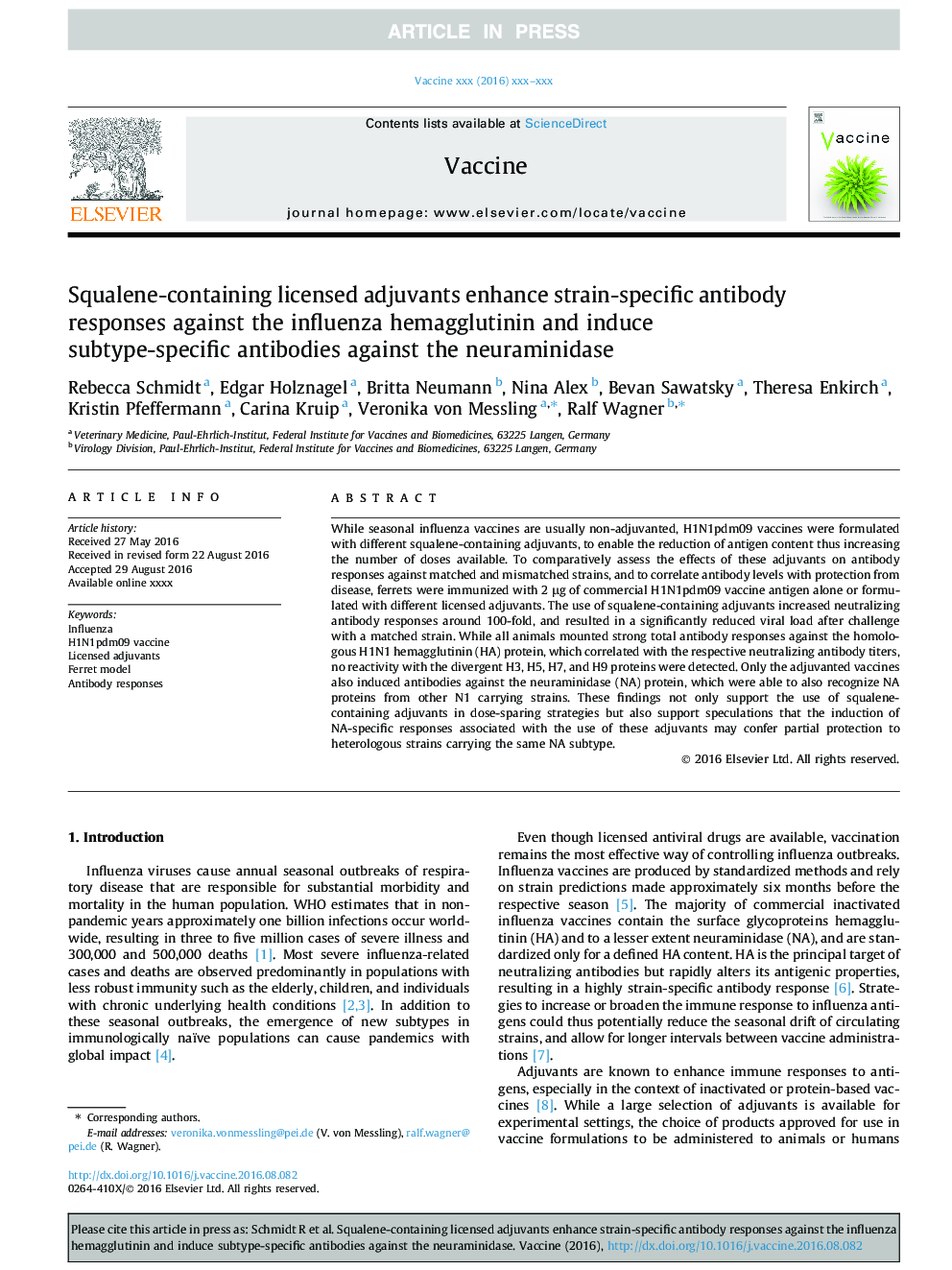| Article ID | Journal | Published Year | Pages | File Type |
|---|---|---|---|---|
| 5537492 | Vaccine | 2016 | 7 Pages |
Abstract
While seasonal influenza vaccines are usually non-adjuvanted, H1N1pdm09 vaccines were formulated with different squalene-containing adjuvants, to enable the reduction of antigen content thus increasing the number of doses available. To comparatively assess the effects of these adjuvants on antibody responses against matched and mismatched strains, and to correlate antibody levels with protection from disease, ferrets were immunized with 2 μg of commercial H1N1pdm09 vaccine antigen alone or formulated with different licensed adjuvants. The use of squalene-containing adjuvants increased neutralizing antibody responses around 100-fold, and resulted in a significantly reduced viral load after challenge with a matched strain. While all animals mounted strong total antibody responses against the homologous H1N1 hemagglutinin (HA) protein, which correlated with the respective neutralizing antibody titers, no reactivity with the divergent H3, H5, H7, and H9 proteins were detected. Only the adjuvanted vaccines also induced antibodies against the neuraminidase (NA) protein, which were able to also recognize NA proteins from other N1 carrying strains. These findings not only support the use of squalene-containing adjuvants in dose-sparing strategies but also support speculations that the induction of NA-specific responses associated with the use of these adjuvants may confer partial protection to heterologous strains carrying the same NA subtype.
Related Topics
Life Sciences
Immunology and Microbiology
Immunology
Authors
Rebecca Schmidt, Edgar Holznagel, Britta Neumann, Nina Alex, Bevan Sawatsky, Theresa Enkirch, Kristin Pfeffermann, Carina Kruip, Veronika von Messling, Ralf Wagner,
